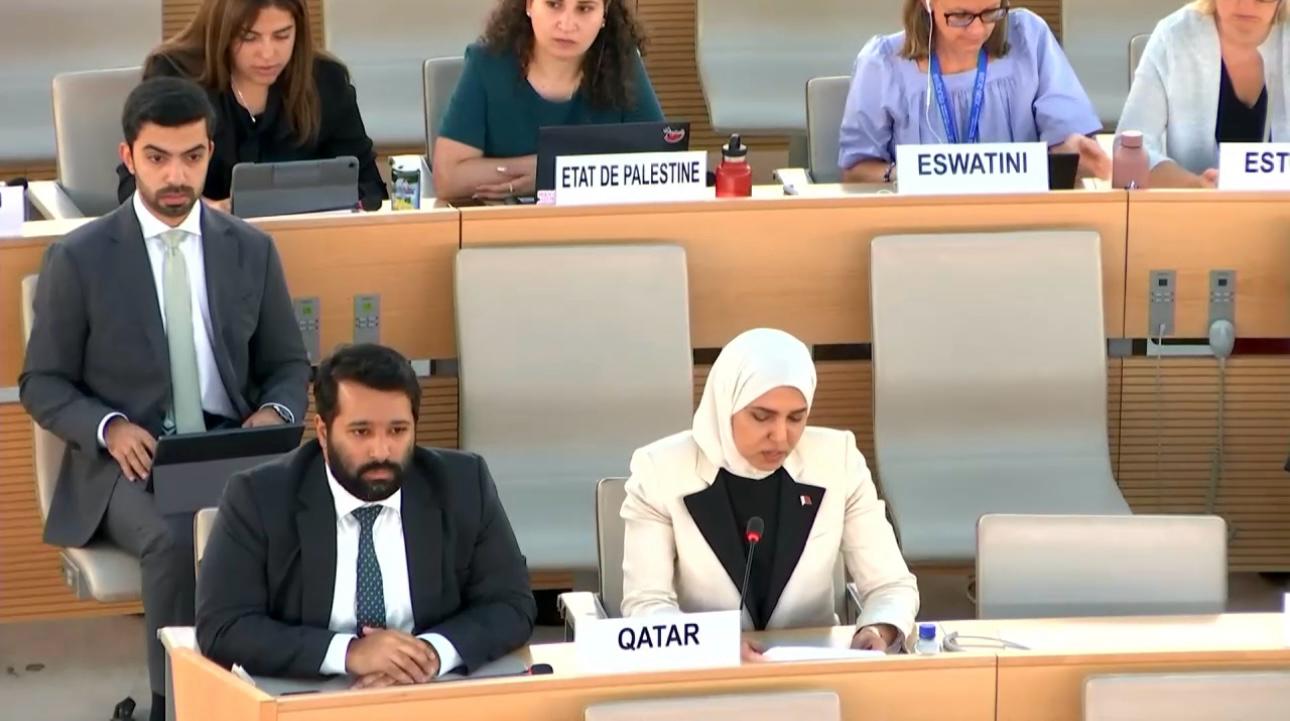Qatar Delivers Joint Statement on Behalf of 70 Countries During Interactive Dialogue with Special Rapporteur on Right to Health

Geneva, June 19, 2025
HE Permanent Representative of the State of Qatar in Geneva Dr. Hind Abdulrahman Al Muftah has delivered a joint statement on behalf of 70 countries, representing different geographical regions, during her participation in an interactive dialogue with the Special Rapporteur on the right to health, within the framework of the 59th session of the Human Rights Council in Geneva.
Her Excellency said that attacks on healthcare should be considered serious violations of international law, requiring the prosecution of perpetrators.
She emphasized in this context that accurate and timely reporting of such attacks is crucial to ensuring effective accountability, ending impunity, and preventing the recurrence of such violations.
She stressed that the enjoyment of the highest attainable standard of physical and mental health is a fundamental right of every human being, without discrimination, and is guaranteed in times of peace and war alike.
HE the Permanent Representative of the State of Qatar in Geneva said that the principle of distinction during armed conflict requires parties to a conflict not to attack civilian objects, including hospitals, health facilities, and civilian health and care workers.
She noted in this regard that the past three years have witnessed an alarming increase in the frequency, scale, and impact of attacks on health care in conflict zones, reaching the highest level ever recorded in 2024.
She added that these attacks may constitute serious violations of international humanitarian law and may constitute war crimes.
They also constitute serious violations of the human rights of health workers, the sick, and the wounded, and negatively impact the rights to life, health, and liberty.
Her Excellency emphasized that protecting the right to health during armed conflict is a critical humanitarian and legal issue, calling on all armed conflict parties to fulfill their obligations under international humanitarian law, including refraining from targeting health facilities and personnel during armed conflicts, and ensuring that health workers have full, safe, and unrestricted access to those in need to provide health care in a safe and protected environment without interruption.
Her Excellency urged that the right to health be integrated into peace negotiations and peacebuilding, and that it be an essential part of post-war reconstruction and recovery strategies.

